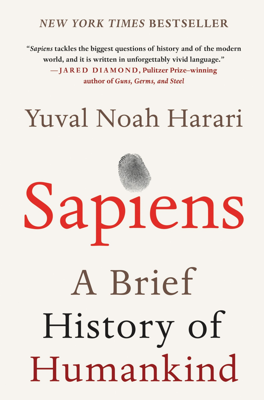History’s Biggest Fraud
The Agricultural Revolution: A Radical Shift in Sapiens' Lifestyle
Around 10,000 years ago, Homo sapiens transitioned from a lifestyle of gathering wild plants and hunting wild animals to one where they devoted considerable effort towards the cultivation of selected plants and domestication of animals. This shift is known as the Agricultural Revolution. It began in regions like southern Turkey, western Iran, and the Levant with the domestication of wheat, goats, peas, lentils, and later expanded to include other crops and regions worldwide.
Misconceptions and Realities of Farming
Originally thought to be a major advancement, the Agricultural Revolution is now often seen more critically. The idea that it marked a progressive, voluntary shift is questionable. Instead, it likely entrapped Homo sapiens into harder lives with poorer diets, despite leading to a massive increase in food production and population growth. Although it enabled humans to settle, build communities, and establish large societies, it also brought numerous challenges, including diseases, increased susceptibility to famine, and new forms of social inequality and conflict.
The Domestication of Plants and Animals: A Two-Way Street
The domestication process was perhaps as much plants and animals domesticating humans as the other way around. Crops like wheat demanded significant human effort for cultivation—clearing fields, regular watering, and protection against pests. This connection fundamentally changed humans’ lifestyles, leading them to settle permanently near their fields. Ironically, such significant involvement in agriculture did not necessarily result in a better quality of life; instead, it often led to a life of strenuous labor with minimal reward.
Implications for Domesticated Animals
The Agricultural Revolution profoundly impacted domesticated animals, arguably for the worse. Practices such as selective breeding, caging, and other controlling measures like castration were employed to make animals more manageable and useful to humans. Such practices often resulted in a life of suffering and subjugation for these animals, contradicting the notion of their evolutionary success. The rise of pastoral societies further spread these practices, demonstrating a complex relationship between human prosperity and animal welfare.
Lasting Impact and Reflection
This transition to agriculture set a pattern where immediate benefits or necessities drove decisions with long-term consequences that were not always favorable or intended. The shift did not just change human society; it also had a lasting and often detrimental impact on the planet's biodiversity and the welfare of other living beings. This era not only reshaped human life and social structures but also initiated a series of ecological and ethical dilemmas that continue to resonate in contemporary times.
Overall, the Agricultural Revolution was a complex and often paradoxical period that brought significant and lasting changes to Homo sapiens, their environment, and their cohabitants on Earth, redefining survival and prosperity in new terms that were not always beneficial for all involved.
